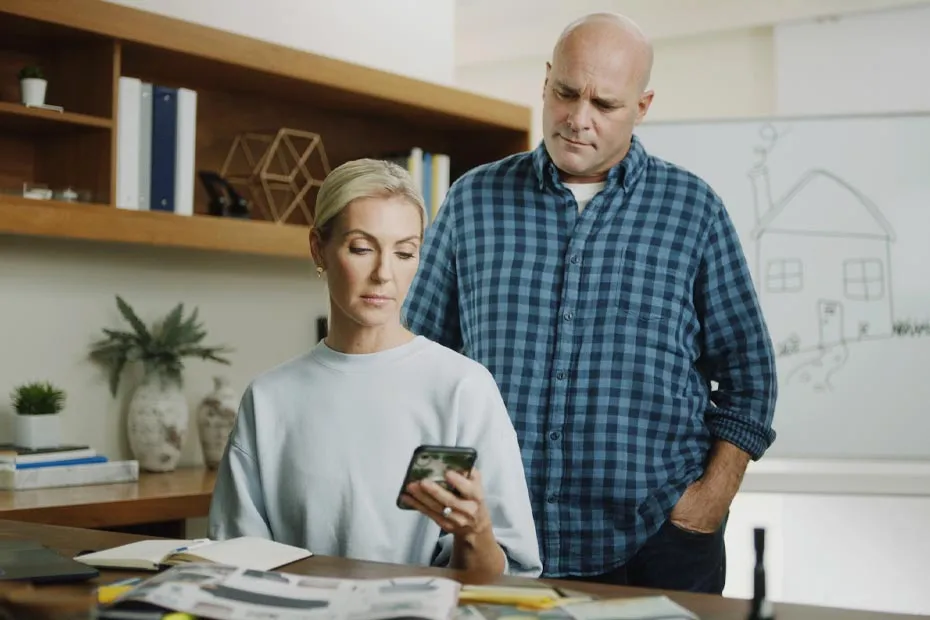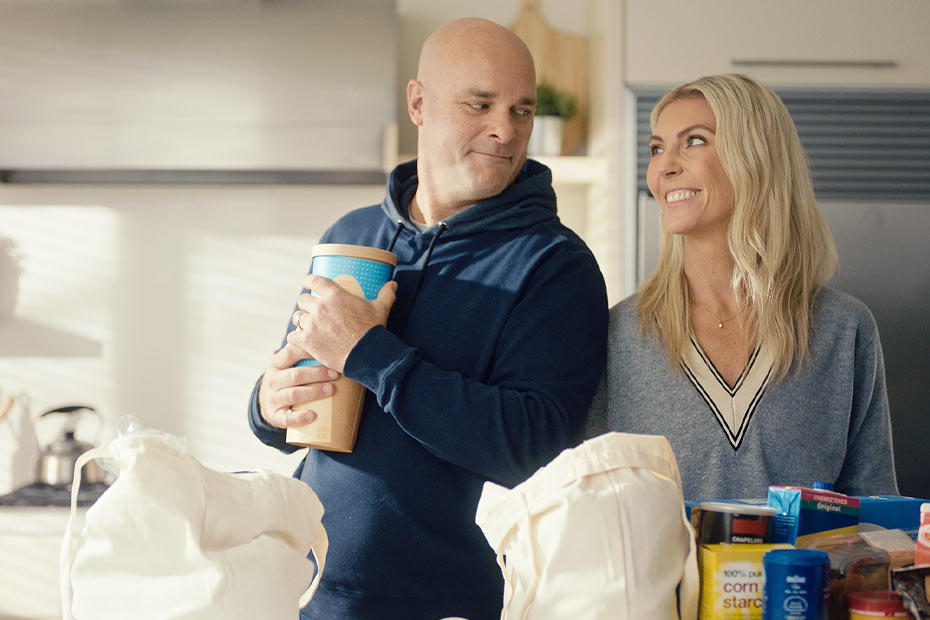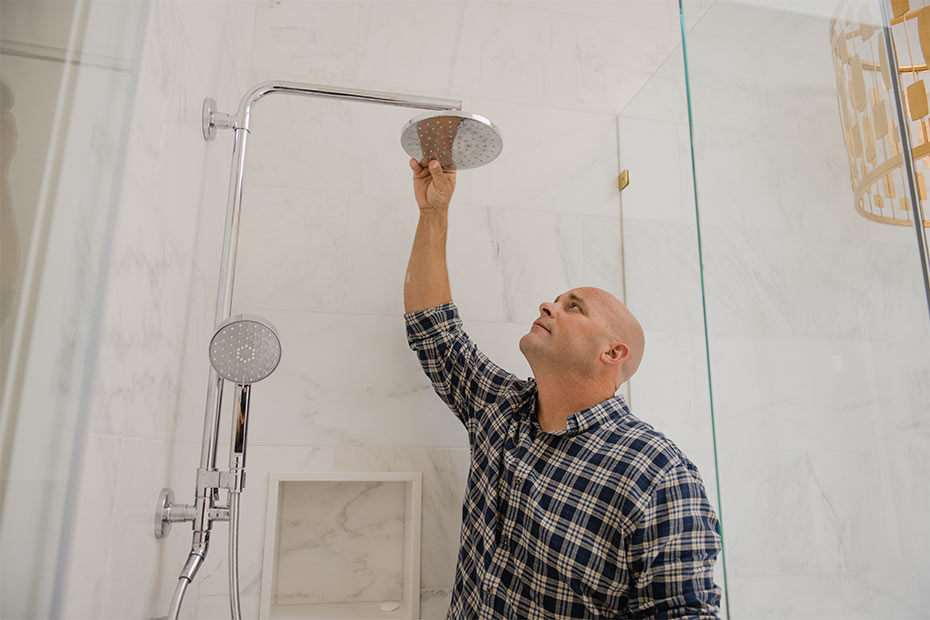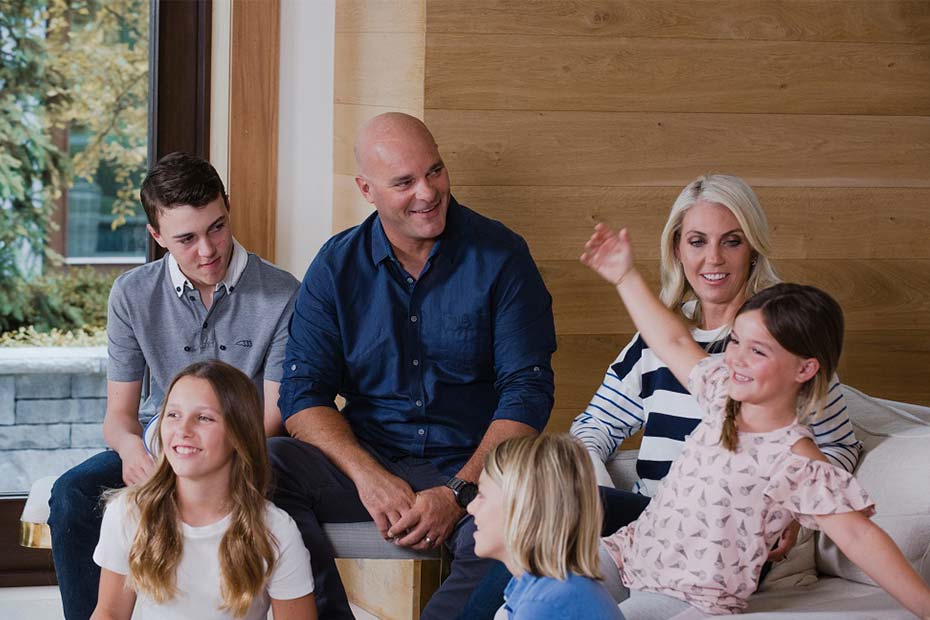Published September 1, 2021 • 5 Min Read
Buying a home is an emotional decision. Whether it’s your first time or you’ve been down this road before, your next home is where you plan to lay down roots, build some memories, and live your life. Naturally, emotions will be part of the process, especially if you feel you’ve found your dream home. But buying with the heart — without evaluating with the head — can lead to some home buying mistakes.
Take a look at what HGTV Canada’s Bryan and Sarah Baeumler have to say when asked about the biggest mistakes home buyers make — and find out what they wish they’d done differently along their journey of home ownership.
Here are five common mistakes that you’ll want to watch out for as you consider your home purchase.
1. No home inspection
If you’re buying in a hot market where sellers prefer easy, no-condition offers, it can be tempting to forego the home inspection in favour of securing the perfect home. But there can be a hefty cost that can come with rushing in.
A home inspection in Canada will typically run you anywhere from $350 – $600. But the cost of not getting a home inspection? Consider discovering your new home has a cracked foundation, an outdated electrical system, or the basement is full of mold. Foundation repairs can cost anywhere from $500 – $10,000, depending on the extent of the damage, while bringing electrical up to code can cost up to $15,000. And if you have a mold issue, you could be looking at tens of thousands of dollars to clear it out.
While you may decide to buy a home even with some deficiencies, it’s important to go in with your eyes open and know exactly what you’re dealing with.
2. No contingency budget
Home ownership is expensive — consider closing costs, unexpected repairs, maintenance, and planned renovations — and many buyers underestimate how much money they need to cover the costs of home ownership. While putting all of your available funds into your down payment might maximize how big of a home you can buy, you could be left without funds to cover any surprises.
Having a contingency budget can be key to ensuring you can truly afford your home. Keep in mind that you should be budgeting three to four per cent of a home’s purchase price for closing costs and that most home renovation projects end up going over the initial estimate.
Avoid this common homebuyer mistake by being thoughtful and thorough with your initial budget, and giving yourself enough buffer for the unexpected.
3. Spending money in the wrong places
When you purchase a home, you want it to look as amazing as possible. So if you have a renovation budget, refinishing the main floor bathroom or remodelling the kitchen may be top of your wish list. Before you tackle those projects, however, do you know what shape your roof is in, or how old your furnace is?
Prioritizing your home’s efficiency and foundational elements over aesthetic finishes will give you more bang for your buck, and help ensure your home runs well for years to come.
The functionality and sustainability of your home is what makes it a valuable asset.
4. Buying out of your price range
It can be easy to get swept up in buying a home you love. If your home is just a little beyond you price range, you may think that a slight stretch of the budget can’t be that bad. It’s important to do the math: Can you actually afford the mortgage payments on a home that’s outside the range you originally set for yourself? And, what if mortgage rates go up?
Before you buy, it’s a good idea to do a mortgage stress test to see if you can still afford your home if mortgage rates increase. For example, if you have a $400,000 mortgage at a rate of 3.4%, your monthly mortgage payment would be $1,976. If that rate increases to 5.4%, your mortgage payment becomes $2,418.
A great way to find out what your monthly payments might be is to try a mortgage payment calculator. You can customize your mortgage amount and interest rate, and compare different scenarios to ensure you’re safely within your comfort zone.
Buyers set a price range for a reason. If you buy outside of it, you might wind up seriously financially stretched. Plus if rates go up, your home might become unaffordable.
5. Choosing house over neighbourhood
You may feel you’ve found the perfect house, but if the location isn’t the right fit, you may regret the decision soon after moving day.
Remember, you can always improve a home — even add a bathroom or bedroom down the road. But, you can’t change how busy your street is, how close you are to the things that matter to you, and how safe the neighbourhood is.
Prioritizing the location of your home is an important step toward buying the perfect house — or the house that can be perfect once you add your personal touch.
This article is intended as general information only and is not to be relied upon as constituting legal, financial or other professional advice. A professional advisor should be consulted regarding your specific situation. Information presented is believed to be factual and up-to-date but we do not guarantee its accuracy and it should not be regarded as a complete analysis of the subjects discussed. All expressions of opinion reflect the judgment of the authors as of the date of publication and are subject to change. No endorsement of any third parties or their advice, opinions, information, products or services is expressly given or implied by Royal Bank of Canada or any of its affiliates.
Any information, opinions or views provided in this document, including hyperlinks to the RBC Direct Investing Inc. website or the websites of its affiliates or third parties, are for your general information only, and are not intended to provide legal, investment, financial, accounting, tax or other professional advice. While information presented is believed to be factual and current, its accuracy is not guaranteed and it should not be regarded as a complete analysis of the subjects discussed. All expressions of opinion reflect the judgment of the author(s) as of the date of publication and are subject to change. No endorsement of any third parties or their advice, opinions, information, products or services is expressly given or implied by RBC Direct Investing Inc. or its affiliates. You should consult with your advisor before taking any action based upon the information contained in this document.
Furthermore, the products, services and securities referred to in this publication are only available in Canada and other jurisdictions where they may be legally offered for sale. Information available on the RBC Direct Investing website is intended for access by residents of Canada only, and should not be accessed from any jurisdiction outside Canada.
Share This Article






